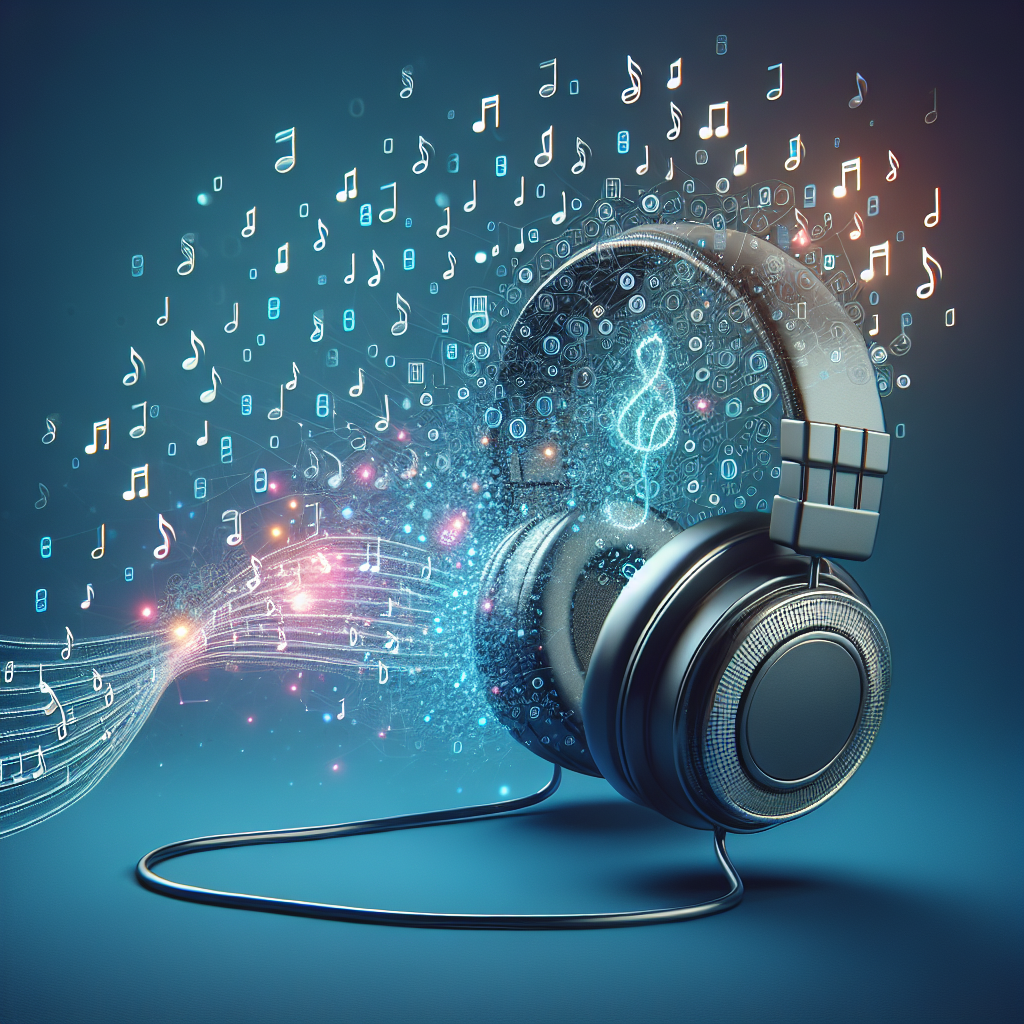AI (Artificial Intelligence) has been revolutionizing various industries, and the music industry is no exception. With the advancement of AI technology, the way we listen to music has been undergoing significant changes. From personalized music recommendations to AI-generated music compositions, AI is playing a crucial role in shaping the future of music consumption.
One of the most noticeable ways AI is changing the way we listen to music is through personalized music recommendations. Platforms like Spotify and Apple Music use AI algorithms to analyze users’ listening habits and preferences to provide them with personalized playlists and recommendations. These algorithms take into account factors such as the user’s listening history, favorite genres, and mood preferences to curate playlists that cater to the individual’s taste. This not only enhances the listening experience for users but also helps them discover new music that they may not have come across otherwise.
AI is also being used to create music compositions. Companies like OpenAI and Amper Music have developed AI systems that can generate music compositions based on specific parameters set by the user. These AI-generated compositions can be used in various ways, from background music in videos to creating original music tracks for artists. While AI-generated music may not replace human creativity entirely, it offers a new tool for musicians and producers to experiment with and explore new possibilities in music creation.
Another way AI is changing the way we listen to music is through music analysis. AI algorithms can analyze music tracks to extract key features such as tempo, key signature, and mood. This information can be used to categorize music into different genres, create playlists based on mood or tempo, and even help in music discovery. AI-powered music analysis tools like Shazam can identify songs by analyzing snippets of music, making it easier for users to discover new music and artists.
Furthermore, AI is being used to improve the quality of music streaming services. AI algorithms can enhance the sound quality of music tracks by removing background noise, improving audio compression, and even upscaling low-quality audio files. This results in a better listening experience for users, especially on streaming platforms where audio quality is crucial.
One of the most exciting developments in AI and music is the creation of virtual artists. Companies like Endel and Auxuman have created virtual artists that use AI algorithms to produce original music compositions. These virtual artists can perform live concerts, release albums, and interact with fans on social media platforms. While virtual artists may not replace human musicians, they offer a new and innovative way for AI to create music and engage with audiences in a digital world.
Overall, AI is changing the way we listen to music by providing personalized recommendations, generating music compositions, analyzing music tracks, improving audio quality, and creating virtual artists. As AI technology continues to evolve, we can expect even more innovations in the music industry that will enhance the listening experience for music lovers worldwide.
FAQs:
1. How does AI personalize music recommendations?
AI algorithms analyze users’ listening habits and preferences to create personalized playlists and recommendations. Factors such as listening history, favorite genres, and mood preferences are taken into account to curate playlists that cater to the individual’s taste.
2. Can AI-generated music compositions be used commercially?
Yes, AI-generated music compositions can be used commercially. Companies like OpenAI and Amper Music offer AI systems that can create music compositions based on specific parameters set by the user. These compositions can be used in various ways, from background music in videos to creating original music tracks for artists.
3. How does AI analyze music tracks?
AI algorithms can analyze music tracks to extract key features such as tempo, key signature, and mood. This information can be used to categorize music into different genres, create playlists based on mood or tempo, and help in music discovery.
4. How does AI improve the quality of music streaming services?
AI algorithms can enhance the sound quality of music tracks by removing background noise, improving audio compression, and upscaling low-quality audio files. This results in a better listening experience for users on music streaming platforms.
5. Are virtual artists created by AI replacing human musicians?
Virtual artists created by AI are not replacing human musicians but offer a new and innovative way for AI to create music and engage with audiences in a digital world. While virtual artists may not have the same creativity and emotion as human musicians, they provide a unique experience for music lovers.

